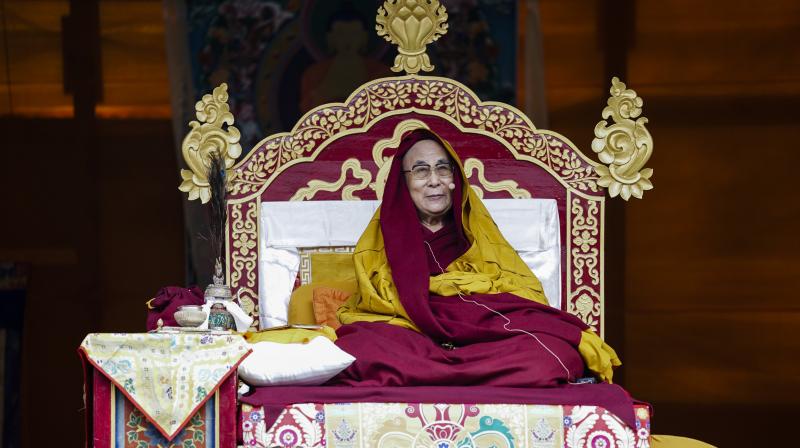China, India in war of words over Dalai Lama's Arunachal Pradesh visit
China accuses India of causing serious damage' to ties and an unfazed New Delhi sticks to its position that it was a religious' act.

Beijing/New Delhi: The Dalai Lama's trip to Arunachal Pradesh today triggered a row between the two Asian giants with China accusing India of causing "serious damage" to ties by "obstinately" allowing the visit and an unfazed New Delhi sticking to its position that it was a "religious" act.
A riled China also lodged a protest with India's Ambassador in Beijing Vijay Gokhale over the Tibetan spiritual leader's visit.
"India in disregard to China's concerns obstinately arranged the Dalai Lama's visit to the disputed part of the eastern part of China-India border, causing serious damage to China's interests and China-India relations," Chinese Foreign Ministry Spokesperson Hua Chunying told reporters, adding that China firmly opposes this move.
However, in New Delhi, External Affairs Ministry Spokesperson Gopal Baglay said, "We clearly said that the Dalai Lama is a revered religious leader and has visited Arunachal earlier on half a dozen occasions.”
"We also urged that no political colour be ascribed to his religious and spiritual activities and to his visits to states of India, and no artificial controversy created around his ongoing visit."
Contradicting India's assertion, Hua said, "Could you tell me honestly do you seriously believe that Dalai is only a religious leader. I think the answer is known to all. He is not just a religious figure.”
"Therefore, his visit to the place will not be purely of religious purpose. So using the empty words to defend this arrangement is not reasonable. We demand the Indian side to stop this move of undermining Chinese interests."
The 81-year-old Tibetan spiritual leader reached Bomdila in West Kameng district yesterday, starting his nine-day visit to Arunachal Pradesh.
Asserting that China's stand on the eastern part of the borders is consistent and clear, Hua said by arranging his visit to those sensitive and disputed areas not only runs counter to the Indian side's commitment to the issues related to Tibet but also escalates disputes over the border area.
The Chinese spokesperson also stated that it goes against the momentum of the sound growth of bilateral relations and will not benefit India in anyway.
China will firmly take "necessary measures" to defend its territorial sovereignty and legitimate rights and interests, she asserted but did not elaborate on it.
"I don't have much to add. I want to add the issues concerning Tibet have a bearing on China's core interests. India in disregard of China's concerns obstinately arranged the visit," she said.
"We demand the Indian side immediately stop its actions using the Dalai Lama to undermine China's interests and not hype up sensitive issues between the two countries, not artificially damage the foundation of the talks between the two countries on the border issues and bilateral legislations and take concrete actions to safeguard the China-India relations," she said.
China claims parts of Arunachal Pradesh as southern Tibet and had previously warned that if India allowed the visit of the Dalai Lama, whom it calls an "anti-China separatist", it would cause "serious damage" to ties.
China is sensitive to the Dalai Lama's visit to Tawang region in Arunachal which happens to be the birth place of the sixth Dalai Lama, who was born in 1683, and is at the centre of Tibetan Buddhism.
Hua also rejected Minister of Home Affairs Kiren Rijiju's remarks that India never interfered in Beijing's affairs and has respected the "One China" policy, and thus China should not interfere in India's internal affairs.
"China upholds the policy of not interfering with other countries internal affairs. This is unquestionable."
"But in disregard to China's concerns, India arranged the visit of Dalai Lama to the disputed areas. This issue goes beyond internal affairs," she said.
Chinese officials in off the record conversations with the media said China is really angry about the Dalai Lama's visit specially because he was accompanied by a minister.
Unlike previous visits, the officials said the Dalai Lama was accompanied by a minister which makes it different.

